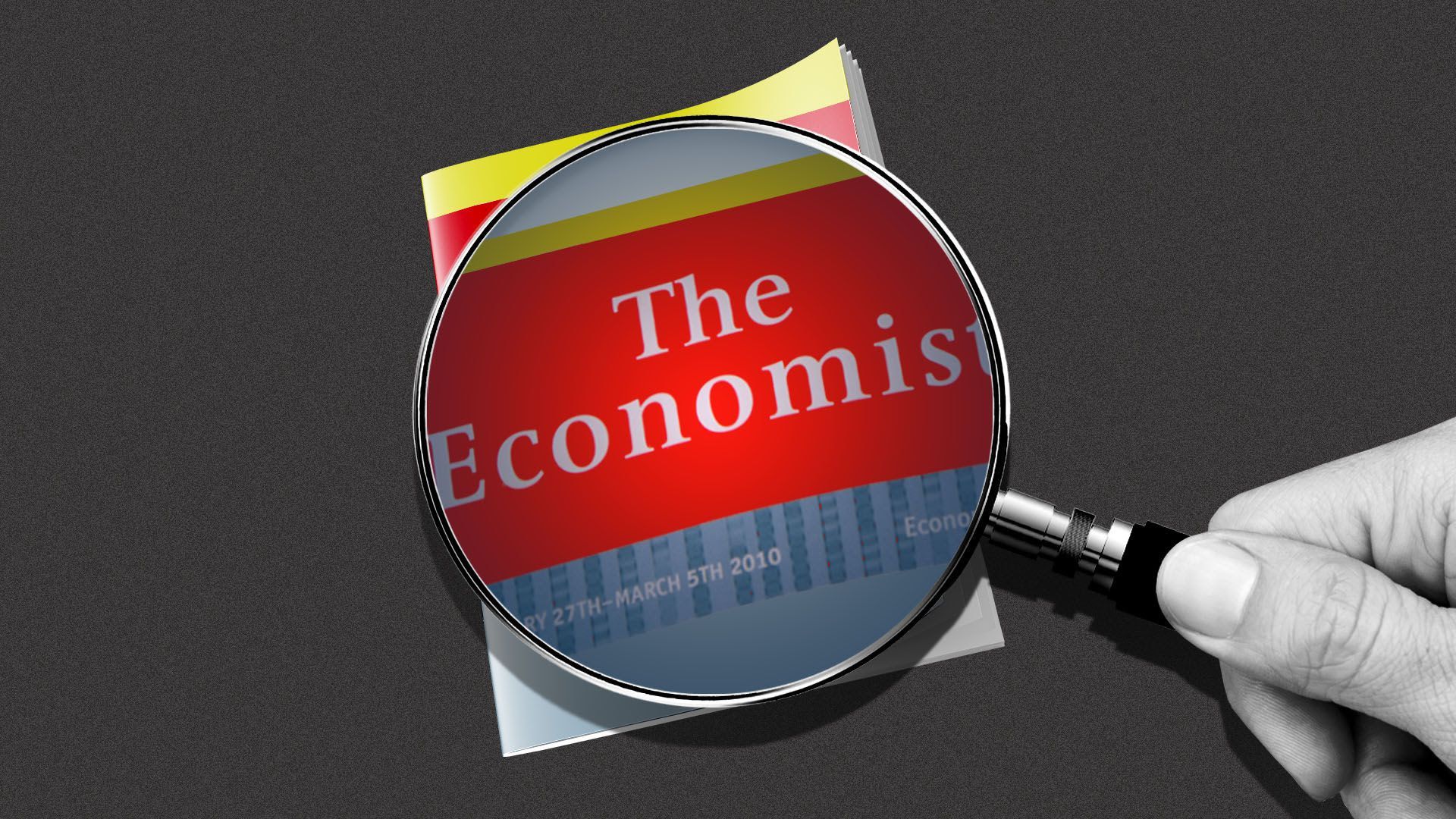The appeal of The Economist
Add Axios as your preferred source to
see more of our stories on Google.

Illustration: Sarah Grillo/Axios
The Economist is by a large margin the most valuable magazine on the planet, still going strong in the digital age, with a 50% non-controlling stake changing hands in 2015 for £469 million ($731 million) in cash. (In comparison, Marc and Lynne Benioff spent $190 million for 100% of Time in 2018.)
The intrigue: The Economist's allure is based in liberalism, but it's not easy to understand how that is defined.
The big picture: Every so often, a talented essayist attempts to identify the source of The Economist's appeal, and invariably finds that its actual quality falls far short of its reputation.
- Jim Fallows wrote "The Economics of the Colonial Cringe: Pseudonomics and the Sneer on the Face of The Economist" for the Washington Post in 1991.
- Andrew Sullivan wrote "Not so groovy" when he was editor of the New Republic in 1999.
Both pieces are good, but neither aspires to being a comprehensive historical survey, going back to The Economist's founding in 1843.
- Now, that survey has finally arrived, in the form of "Liberalism at Large: The World According to The Economist," a new book by Alexander Zevin.
Required reading: Pankaj Mishra's magisterial review-essay of Zevin's book has appeared in the New Yorker, and it is likely to change the way you view not only The Economist, but the entire edifice of liberalism.
- When all 175 years of the magazine's history are viewed as a whole, the reek of colonial hypocrisy becomes impossible to ignore.
Go deeper: Radio's decline is podcasting's gain
